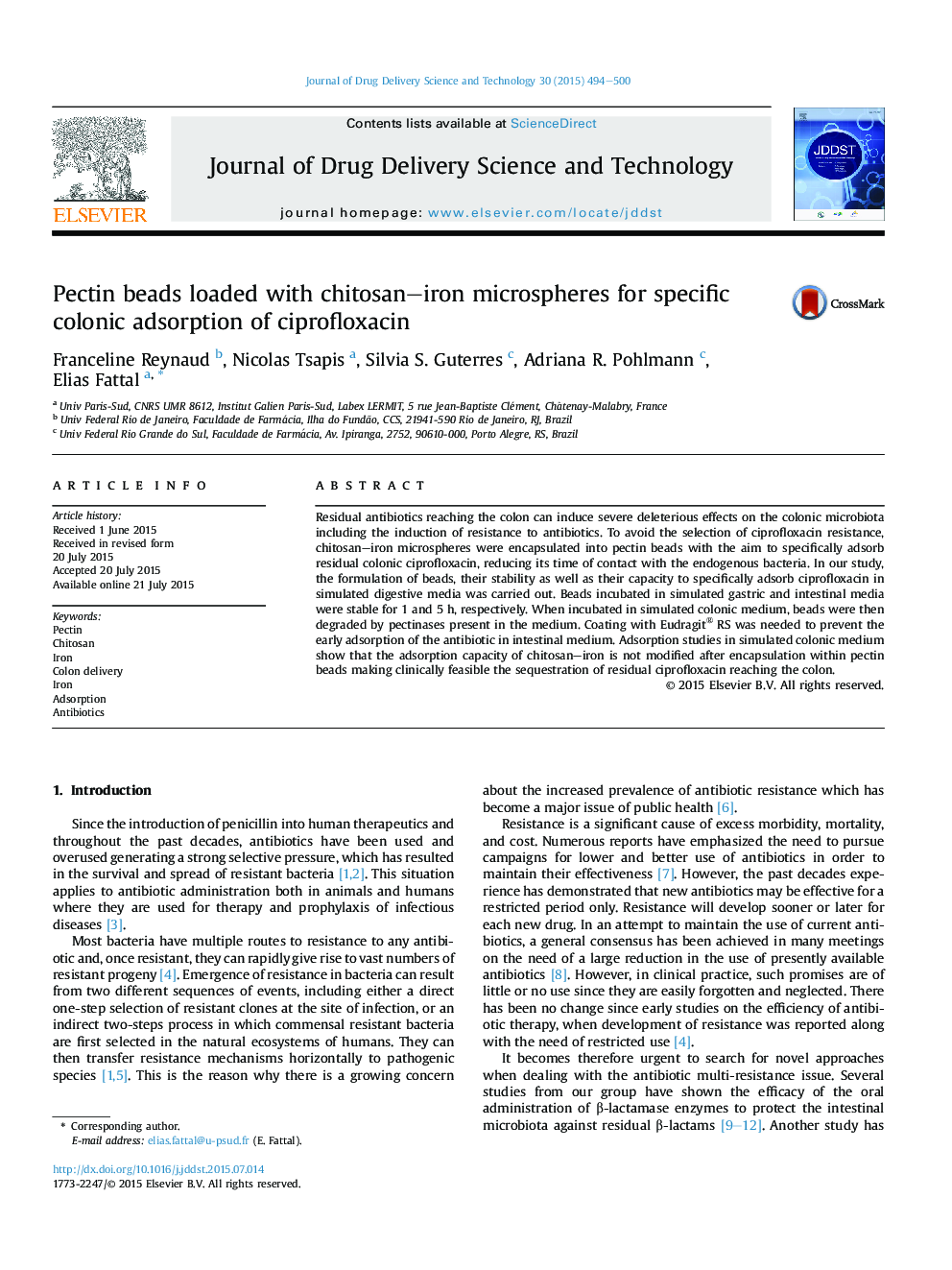| Article ID | Journal | Published Year | Pages | File Type |
|---|---|---|---|---|
| 2483124 | Journal of Drug Delivery Science and Technology | 2015 | 7 Pages |
Residual antibiotics reaching the colon can induce severe deleterious effects on the colonic microbiota including the induction of resistance to antibiotics. To avoid the selection of ciprofloxacin resistance, chitosan–iron microspheres were encapsulated into pectin beads with the aim to specifically adsorb residual colonic ciprofloxacin, reducing its time of contact with the endogenous bacteria. In our study, the formulation of beads, their stability as well as their capacity to specifically adsorb ciprofloxacin in simulated digestive media was carried out. Beads incubated in simulated gastric and intestinal media were stable for 1 and 5 h, respectively. When incubated in simulated colonic medium, beads were then degraded by pectinases present in the medium. Coating with Eudragit® RS was needed to prevent the early adsorption of the antibiotic in intestinal medium. Adsorption studies in simulated colonic medium show that the adsorption capacity of chitosan–iron is not modified after encapsulation within pectin beads making clinically feasible the sequestration of residual ciprofloxacin reaching the colon.
Graphical abstractFigure optionsDownload full-size imageDownload as PowerPoint slide
